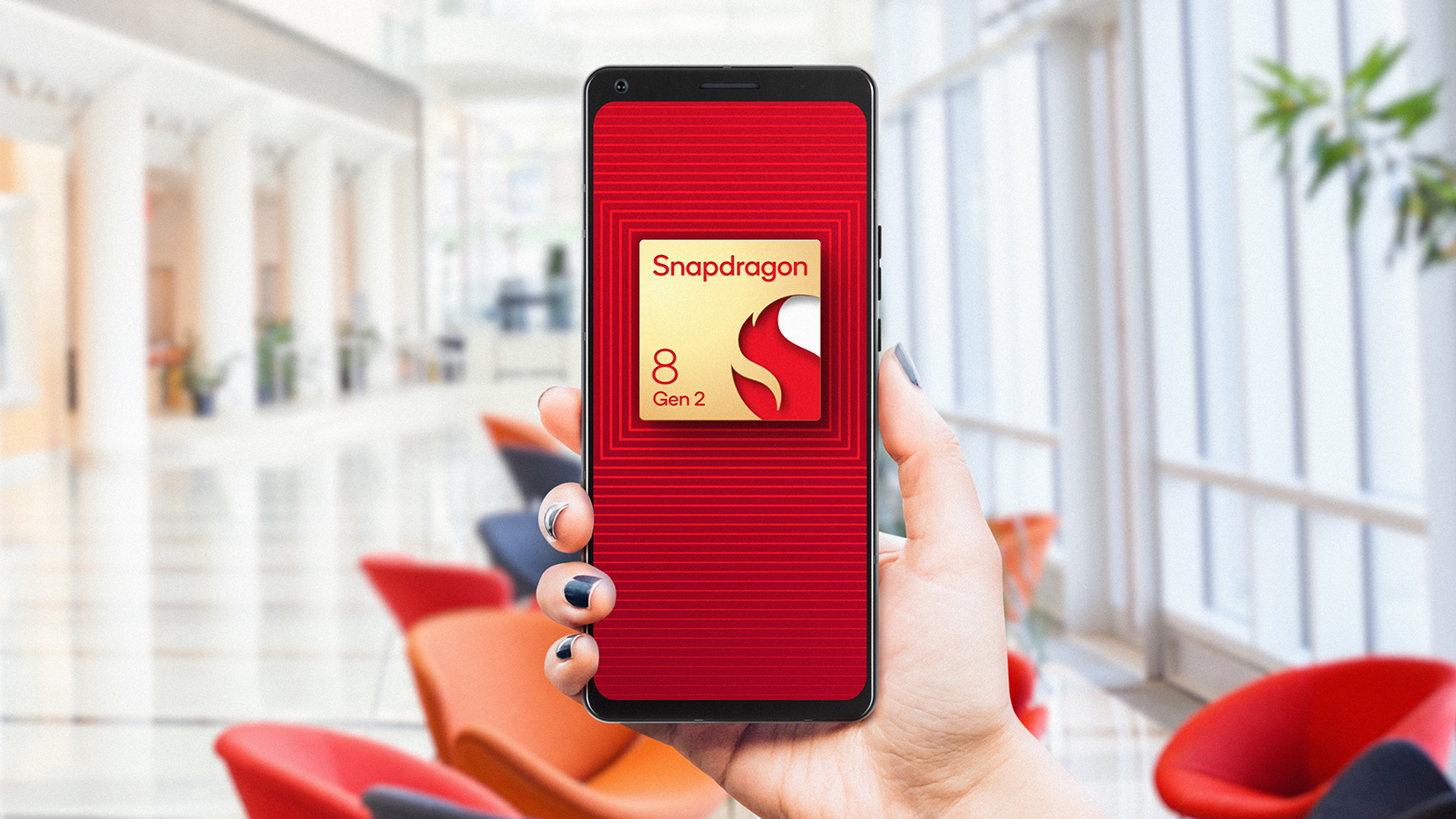Never mind the eSIMs: Snapdragon Android phones are getting iSIMS
It looks like eSIM chips have already had their chips


It hasn't made its way into the best phones of 2023 just yet, but your next Android phone may include a new kind of SIM technology. It's called iSIM, and while it sounds like a relatively small tech change it could have some pretty useful effects on phone design.
If you haven't been following the progress of SIM technology, it goes a bit like this: for years, phones used a SIM (Subscriber Identity Module) card to associate the phone with its owner and number. There's probably one in your phone right now.
Manufacturers and networks did their best to make SIM cards smaller – today's ones are a fraction of the size of the original SIM cards – but no matter how small you make SIMs they still take up physical space: not just the card but the tray to hold it in place and the contacts to connect it.
That's why the eSIM was invented. Instead of a card, the SIM is stored electronically in a dedicated chip. That's the system used in US versions of the iPhone 14 range, and many Androids have it too. But while eSIMs are still relatively new, Qualcomm thinks it has an even better solution: iSIMs.
What's the difference between an eSIM and an iSIM?
The difference is simple. An eSIM lives on a dedicated chip. An iSIM is stored in the main processor, a system-on-a-chip such as a Snapdragon 8. They both work in the same way, delivering digital sign-ups that don't require a physical SIM card, and they both do their job speedily and securely. So from a user point of view, there's no real difference.
From a phone firm's point of view, however, iSIMs mean there's no need to make room for a dedicated SIM chip: iSIM support is right there in the Snapdragon 8 Gen 2 with no additional hardware required. That's very valuable in smartphones and other small digital devices where space is at a real premium and even tiny changes make a big difference.
According to Guillaume Lafaix of Thales, the mobile connectivity firm that's been working on iSIMs with Qualcomm, "the Thales 5G iSIM gives device makers and mobile operators even greater freedom to offer their customers effortless over-the-air connectivity, and more exciting and accessible product designs.”
Get all the latest news, reviews, deals and buying guides on gorgeous tech, home and active products from the T3 experts
It'll also save phone firms a little bit of money too, although if I were you I wouldn't hold my breath waiting for them to pass those savings on.
Although for most of us physical SIMs are still very much a thing, eSIM and iSIM adoption is expected to skyrocket in the next few years. According to research quoted by Qualcomm, iSIMs will be in over 300 million devices by 2027.
Writer, musician and broadcaster Carrie Marshall has been covering technology since 1998 and is particularly interested in how tech can help us live our best lives. Her CV is a who’s who of magazines, newspapers, websites and radio programmes ranging from T3, Techradar and MacFormat to the BBC, Sunday Post and People’s Friend. Carrie has written more than a dozen books, ghost-wrote two more and co-wrote seven more books and a Radio 2 documentary series; her memoir, Carrie Kills A Man, was shortlisted for the British Book Awards. When she’s not scribbling, Carrie is the singer in Glaswegian rock band Unquiet Mind (unquietmindmusic).
